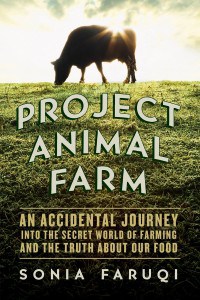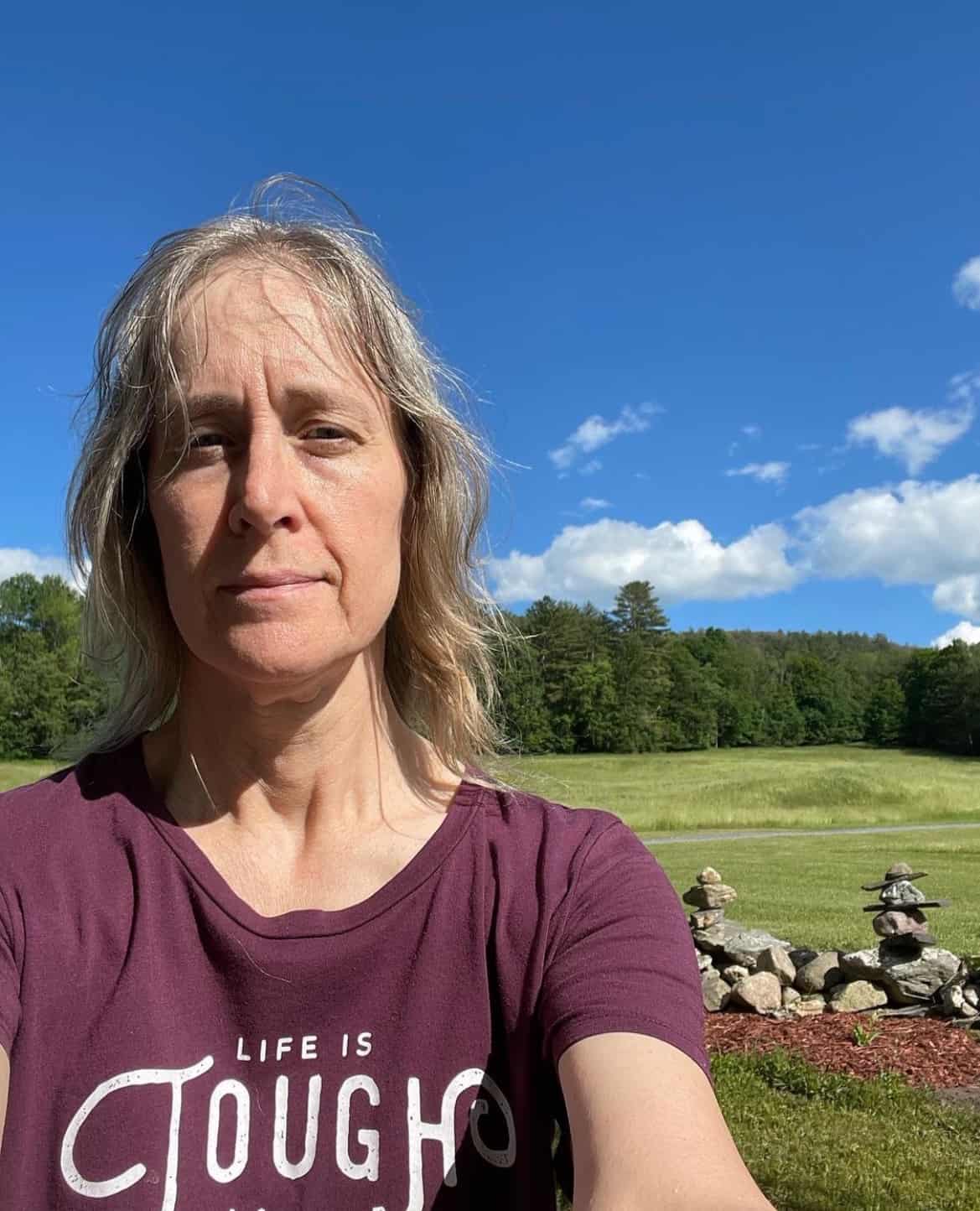Last Updated on February 18, 2022 by ellen
 At some point in our lives, we start to wonder about where our food comes from. As children, the answer might be that it comes from the grocery store. Taking that one step further, we realize that the grocery store gets it from a warehouse, who gets it from somewhere else. Sometimes, we make changes to our lives when we realize exactly where our food does come from. Some people, not only make changes to their lives, they try to change the system. That’s the case in Project Animal Farm by Sonia Faruqi.
At some point in our lives, we start to wonder about where our food comes from. As children, the answer might be that it comes from the grocery store. Taking that one step further, we realize that the grocery store gets it from a warehouse, who gets it from somewhere else. Sometimes, we make changes to our lives when we realize exactly where our food does come from. Some people, not only make changes to their lives, they try to change the system. That’s the case in Project Animal Farm by Sonia Faruqi.
Posts may be sponsored. This post contains affiliate links, which means I will make a commission at no extra cost to you should you click through and make a purchase. As an Amazon Associate I earn from qualifying purchases.
Project Animal Farm by Sonia Faruqi
Born out of a global expedition fearlessly undertaken by a young woman, Project Animal Farm offers a riveting and revealing look at what truly happens behind farm doors.
Sonia Faruqi, an Ivy League graduate and investment banker, had no idea that the night she arrived at the doorstep of a dairy farm would mark the beginning of a journey that would ultimately wind all the way around the world. Instead of turning away from the animal cruelty she came to witness, Sonia made the most courageous decision of her life: a commitment to change things.
Driven by impulsive will and searing passion, Sonia left behind everything she knew and loved to search the planet for solutions to benefit animals, human health, and the environment. Over the course of living with farmers, hitchhiking with strangers, and risking her life, she developed surprising insights and solutions―both about the food industry and herself.
Lively and heartfelt, Sonia takes readers on an unforgettable adventure from top-secret egg warehouses in Canada to dairy feedlots in the United States, from farm offices in Mexico to lush pastures in Belize, from flocks of village chickens in Indonesia to factory farms in Malaysia.
I live in the country. We have our ducks and chickens. I’ve helped bottle feed calves and shovel sh*t in the dairy barn when I was younger. I love animals and the ones we raise have always been pets. I understand where the food comes from in the grocery store, and I know that not all animals are treated well.
I switched to buying organic as often as possible years ago both for health reasons and because to me, organic means nicer. After reading Project Animal Farm by Sonia Faruqi, I realize that’s not always the case. When I see the word “organic” on my milk carton, I picture pretty cows in a field of grass on some small farm in Vermont. I’m sure that’s probably what a lot of people think.
Really though, not all animals that are raised as organic are treated well. There is horrible abuse, disinterest and a lack of caring even on some organic farms – especially the large ones. That abuse extends from the farms to the “kill floors” and beyond. Instead of running away, Sonia Faruqi tried to change these conditions. As disturbing as her story is, I’m very glad I read it. Because it makes me want to make a difference even if it is buying more things from our local farms where I know the farmers and know the conditions aren’t like the ones in the book.
I hope that you’ll take the time to read Project Animal Farm by Sonia Faruqi and maybe make some changes yourself.

Ellen is a mom of a 25-year-old son and 30-year-old daughter. She is Grandma to one adorable toddler. In what little spare time she has, she loves to read, watch movies, and check out the latest toys and games.
I was aware of the inhumane treatment of animals for food at a young age. I even refused to eat meat when I was a teen and complained to my mother that she was making dead animals for dinner, lol. I don’t know how she tolerated me but I have a better understanding now. I grew up around farms and have always loved animals–my cousin is a veterinarian–so big animal lover too.
It really was such an eye opening book!
We grow most of what we eat and that includes our meat. We butcher our own chickens and send the goats to the local butcher. He’s very humane in how he handles the animals and they have a really good life before they go. I think if you are going to eat meat it behooves you to know where it comes from.
I completely agree, Patty!